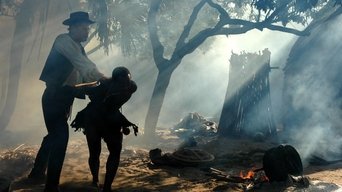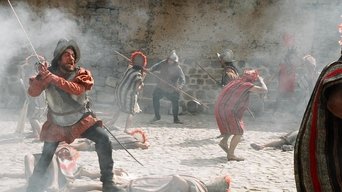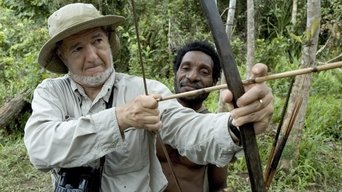SnoopyStyle
Jared Diamond is a professor in UCLA specializing in biology. He endeavors to explain why world history unfolded as it did. Why did certain groups dominate while others ended up so far behind? He starts with a journey to Papa New Guinea. His theory is generally that everybody is the same but certain locations allow for better opportunities. Eurasia had the better crops and animals for domestication. Domestication also allow for germs to develop. Also the east west travel within common climate allowed an easier trade route which advanced technologies even further. And geography explains why China and other monolithic middle east empires stagnated whereas Europe's geography favors a bulkanized map and tougher competitions from close neighbors.In general terms, I have no big problems with his theory. It doesn't add a whole lot to understanding the world. He's not discover something new as much as reorganizing what everybody already knows. There are ideas and concepts that are ignored too easily. There is a lot of generalization but that's the theory. It's trying to generalize the whole of human history with a few simple ideas. The theory is noteworthy for what's not in it as much as what's in it. It's just that I wish there is some definitive mathematical evidence to verify his theory. Also world history has a tendency to be more muddy than what's presented here.
celr
This series asks the question: why do Westerners have so much materially and the natives of New Guinea have so little?Jared Diamond's thesis in Guns, Germs and Steel is that because Europeans had geographical conditions which were favorable to farming and domesticating animals they had natural advantages which allowed them to develop a high degree of civilization and conquer the world. I usually enjoy these video documentaries though I know that I'm getting watered-down history with great visuals. But 'Guns, Germs & Steel' is too weak an idea to carry through more than one episode, let alone three. I was willing to buy his notion that access to domesticating animals allowed for more productive farming and therefore greater civilizational advances. But he fails to explain why other civilizations that had those same advantages, for example China, India, the Middle East, didn't develop the science and technology that allowed Europe to dominate the world. The final episode is about Africa and shows that traditional African culture had many of the same advantages that Europeans had: domesticated animals, immunity to common diseases and efficient farming, yet never developed a higher level of technology. He becomes openly emotional about the current poverty of Africans while failing to explain why other cultures, like India and much of Asia, though formerly colonized, have now managed to advance scientifically and socially while much of Africa remains in misery and backwardness.Diamond likes to refer to the "greed" and "aggressiveness" of European colonizing powers, but isn't everybody "greedy?" How did the Incas (which he uses to illustrate his point) gain a huge empire and amass all that treasure? The Incas had 80,000 men under arms, so they weren't exactly a peaceful people. Farther to the north the Aztecs were not just warlike, but bloodthirsty in the extreme. How did they so easily succumb to the relatively few Spanish invaders? Now that is an interesting question which Diamond touches on in passing but then drops for the rest of the series. He seems to be saying that Western success is merely the result of evil impulses like greed and desire to conquer. This fits the politically correct narrative about the 'evil' West and 'innocent' natives. Unfortunately he can't express this idea openly because it's too simplistic and fails to account for reality.The answer to that question is, at least in part, provided by Victor Davis Hanson's book "Carnage and Culture" where he demonstrates how Western armies often won the day when outnumbered by virtue of superior military discipline. By the end of the three part series his thesis dissolves in contradictions and tediously repeated visual images. The first episode is interesting if a bit elementary, the other 2 are depressing and hollow. He fails to explain, or even attempt to explain, how it was that the scientific and industrial revolutions happened in Europe and nowhere else.
ed_two_o_nine
This is a documentary I came across by chance on the UK TV channel More4 and I have to say I found it extremely interesting and thought provoking. I will also be seeking out the book that was the source material for this documentary. Basically this is Professor Jared Diamond theory on why certain parts of the earth's societies prospered and others did not. The argument he presents was new to me and argued about how the fortune of the right crops and the right animals that where able to domesticated is certainly a compelling one. As for the documentary itself it is well shot and well narrated with not to much of the re-created scenes that spoil many a modern documentary. Diamond also helps by not being to condescending which is a fault of a lot of intellectuals when trying to get a message to the masses. People have claimed his theory is Marxist but I do not buy this and see it more socio geologist. It was also refreshing to hear an theory on the evolution of society not based around religion. Highly recommended viewing.
lucky-16
The documentary presents an original theory about "Guns, Germs and Steel". The series graphically portray several episodes strongly supporting the theory, and defend the theory against common criticism.I was deeply puzzled to find user comments complaining about lack of new information in these series. They say documentary presents information which is taught in middle school. Indeed, it does. In fact, I greatly enjoyed the original look at the information which I have known since middle school and the unexpected analysis.So, if you like knowing WHY things work, if you have taken apart the telephone trying to determine how it worked, if you have gone to the farm to see how farm works and how cows are milked, you will enjoy this series. A definite recommendation.
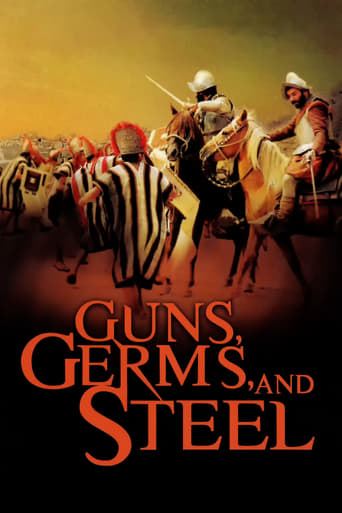
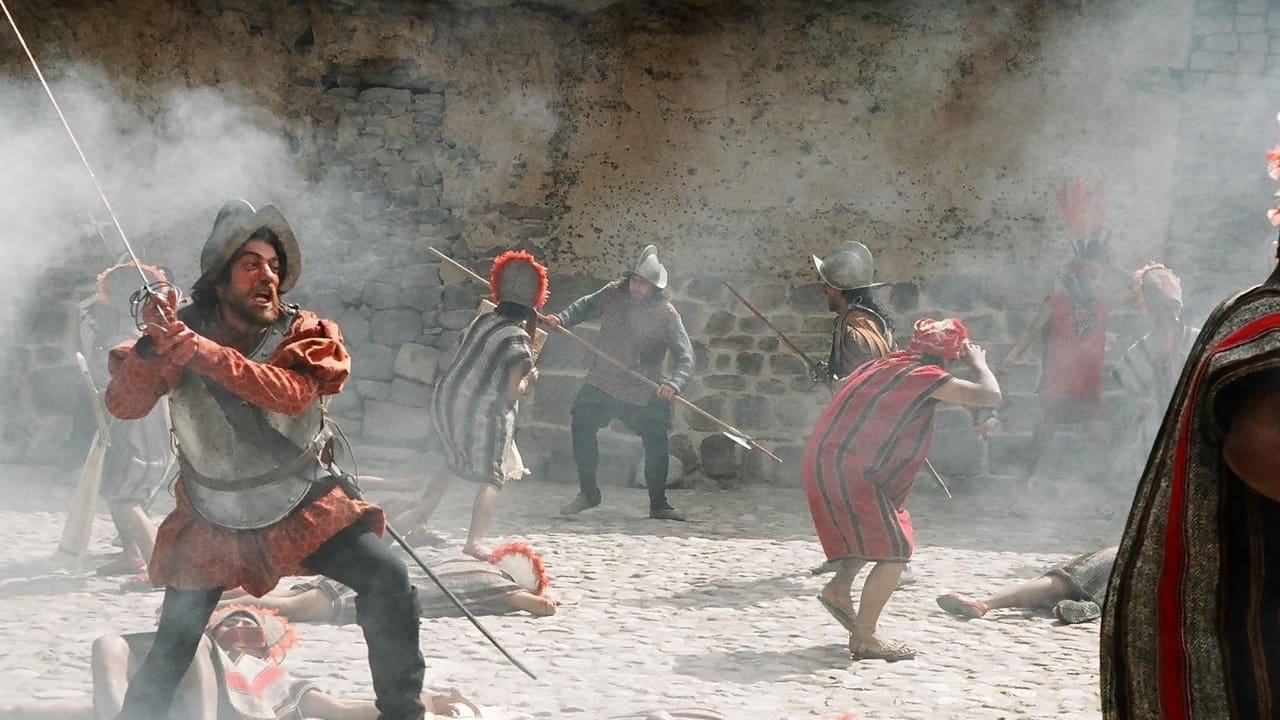
 AD
AD

